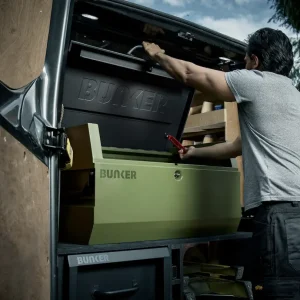Government plans to encourage low-emission vans must avoid penalising companies unable to swiftly switch vehicles, the Freight Transport Association (FTA) has said.
Chancellor of the Exchequer Philip Hammond announced in last week’s Spring Statement that a consultation would be held on lowering VED rates payable on the cleanest vans.
The FTA said its members would be ‘interested but concerned’ about the proposal to ‘help the great British white van driver go green’.
FTA head of UK policy Chris Snelling said: “The announcement of a consultation on taxation rates for the least polluting vans is an encouraging move, but one which must not penalise those whose businesses rely on the vehicles they own. Changing vehicles is a long-term business plan, not something which can be implemented overnight. Government needs to provide clear guidance for operators on how the changes can be made, with minimal impact on business planning processes and overheads, to ensure that logistics companies can continue to offer a competitive, effective service to customers.”
The FTA said it welcomed other plans outlined in the Spring Statement for support for infrastructure and transport.
Snelling said: “With rising inflation and Brexit uncertainties placing a strain on logistics operators, the measures announced are an encouraging boost to the sector.
“Any improvements to infrastructure will support the work of our members in ensuring that Britain keeps trading, and we look forward to learning more from government about how its plans can become reality.
Snelling was less impressed by the announcement of a bidding process for a share of £840 million to deliver local transport priorities, which he said did not go far enough to address problems across the road network.
He said: “While the announcement of this bidding process will solve some of the country’s infrastructure problems, it is disappointing that this fund may not be sufficient to conduct repairs nationwide.
“Local government estimates that it costs an average of £53 per pothole to effect efficient repairs, and following the recent cold weather and ongoing lack of investment, it is clear that this fund will be insufficient to meet the needs of the ailing road network.
“To ensure that Britain can keep trading effectively both at home and abroad, a comprehensive programme of road repairs which brings surfaces back to condition is vital if goods are to continue to move freely and efficiently.”





